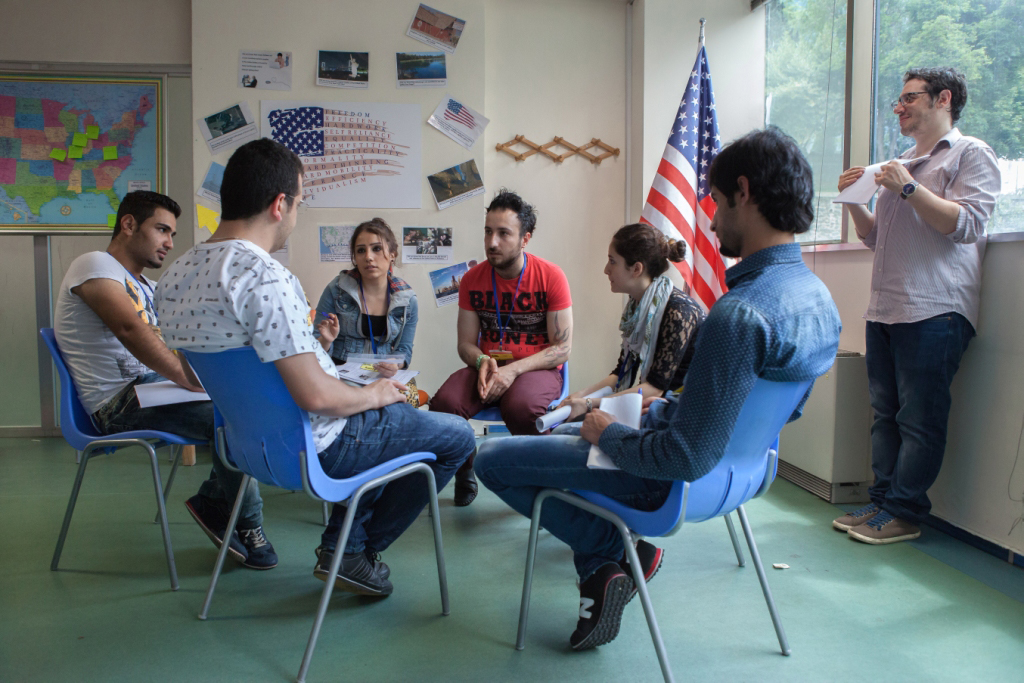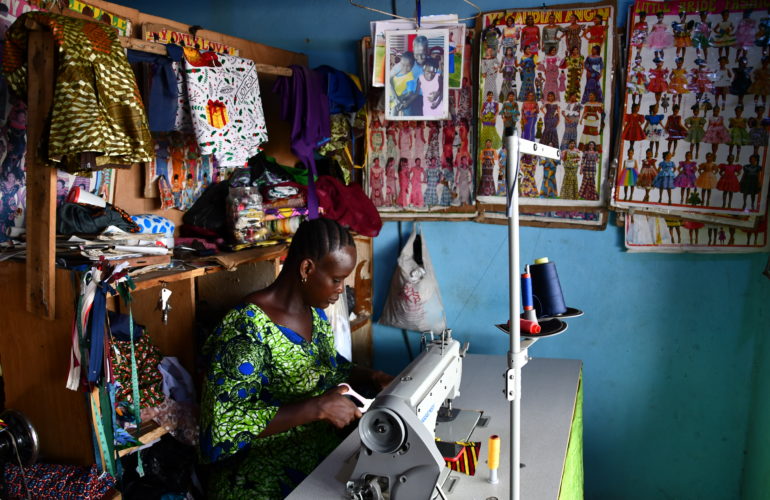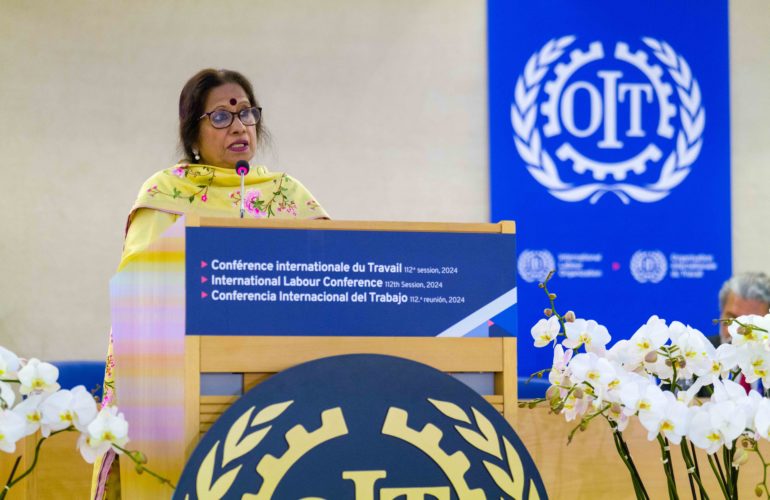The ICMC Resettlement Support Center for Turkey and the Middle East is a long-standing partner of the U.S. Refugee Admissions Program. With offices in Istanbul and Beirut, it is one of the largest operations of its kind in the world. Offering a wide range of services, it contributes to making possible for vulnerable refugees to begin a new life in the United States.
For many of the over 25 million refugees worldwide, returning home is not an option, nor is remaining permanently where they have first sought safety. Resettling to a third country offers them the possibility of starting again in security, with rights similar to those of other residents and a longer-term perspective.
Resettlement is the selection and transfer of refugees from a State in which they have initially sought protection to a third State which has agreed to admit them on a permanent basis. It is an important protection tool for refugees and a form of international responsibility-sharing among States.
Since the 1970s, ICMC has helped with the movement of more than one million refugees to the U.S.
The United States of America has long been a global leader in refugee resettlement, with a historical average of 95,000 refugees resettled every year over the last decades. ICMC history of helping resettle refugees to the United States goes back to the 1950s. Over the years, ICMC has helped with the movement of more than one million refugees to the U.S.
The ICMC Resettlement Support Center (RSC) for Turkey and Middle East has four decades of experience in working with the U.S. Refugee Admissions Program (USRAP) and preparing refugees to start anew in the United States.

Funded by the U.S. State Department’s Bureau of Population, Refugees and Migration, the Center has developed long-standing partnerships with the UN Refugee Agency (UNHCR), the UN Migration Agency (IOM), as well as the Turkish and Lebanese authorities.
The RSC programs are carried out by skilled local and international staff familiar with the patterns of displacement in the wider region. They have extensive experience with refugees from a diverse range of national, cultural, religious and social backgrounds. The RSC operates in a state-of-the-art facility, with multiple interview rooms, classrooms and child-friendly spaces.
RSC staff in Istanbul and Beirut accompany applicants through the many steps of the intense resettlement vetting process. They facilitate medical exams for refugees being considered for resettlement and offer cultural orientation classes to prepare them for life in their new home country.
Dealing with the changes in refugee admission policies to the United States since 2017, RSC staff has worked with the U.S. Consulate and Embassy staff to mobilize support for those left in an uncertain situation and helped arrange for a fund to assist destitute families.
Areas of Expertise and Work
The ICMC Resettlement Support Center offers a complete set of services from case processing, cultural orientation and facilitation of medical screenings to logistics and communication. The staff at RSC is fluent in nearly a dozen languages while a pool of interpreters ensures effective communication in further languages as needed.
The staff is well-versed in all aspects of resettlement services, from interview techniques to monitoring, documentation, protection and anti-fraud measures, as well as safety and security.
The ICMC Resettlement Support Centers’ cultural orientation curriculum includes practical questions that refugees may have, such as how to apply for a job, enroll their children in school, access healthcare and open a bank account. It also eases their integration by teaching them about the culture of their country of destination.
The RSC staff take care of the recording of refugee case history and biographical information, the identification of vulnerable refugees and the preparation and support of selection missions sent by the U.S. government. They also provide specialized, interactive cultural orientation courses, with a curriculum that focuses on realistic expectations and active civic participation.
Additionally, the RSC facilitates medical screenings, coordinates travel arrangements and ensures proper accommodation and lodging for refugees who are in the resettlement process.
In order to keep refugees updated on their cases, RSC staff manage a phone helpline available five days a week, a dedicated email address and a website (in Arabic, English and Farsi) with a secure area for refugees to track their application status.



